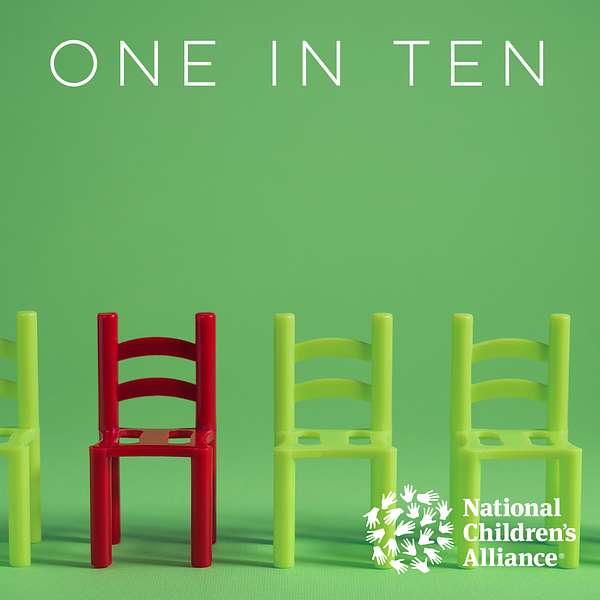
One in Ten
Engaging the brightest minds working to solve one of the world's toughest challenges—child abuse. Join us for conversations with leading experts on science, law, medicine, morality, and messaging. One in Ten is brought to you by National Children's Alliance, the largest network of care centers in the U.S. serving child victims of abuse. Our host is Teresa Huizar, NCA's CEO and a national expert on child abuse intervention and trauma treatment. Visit us online at nationalchildrensalliance.org.
One in Ten
The Intersection of Technology and Forensic Interviewing
Use Left/Right to seek, Home/End to jump to start or end. Hold shift to jump forward or backward.
Before anyone had ever heard of COVID-19, professors at Central Michigan University and Montclair State University were examining whether forensic interviewers could use telehealth technology to connect with children in remote or rural service areas in cases where child abuse was suspected. It was interesting research but not particularly urgent, because whatever their findings, most forensic interviews would still be conducted face-to-face. Then the pandemic hit.
Forensic interviews are conducted by specially trained individuals who must talk to children about abuse allegations in ways that are unbiased, fact-finding, legally sound, and not traumatizing. With communities across the country shutting down, we needed to know: Are teleforensic interviews as accurate and effective as face-to-face interviews? And are children OK with them? We talked to professors Debra Poole and Jason Dickinson to find out what they’ve learned.
Topics in this episode:
- Why research teleforensic interviewing? (1:43)
- The reaction (before the pandemic) (6:46)
- A matter of equity; and, what the study found (9:48)
- Unanswered questions (17:50)
- Interviewer discomfort (25:03)
- Building psychological safety (33:12)
- What additional training will interviewers need? (38:40)
- What’s next to study? (44:50)
- Our next episode (49:00)
Links:
Jason Dickinson, Ph.D., acting chairperson, Social Work and Child Advocacy, Montclair State University (New Jersey)
Debra Poole, Ph.D., experimental faculty, Department of Psychology, Central Michigan University
Martine Powell, Ph.D., professor, School of Criminology and Criminal Justice, Griffith University (Brisbane, Australia)
Crimson Barocca, LCSW-C, forensic interview program supervisor, Baltimore Child Advocacy Center (Baltimore, Maryland)
Leyla Sandler, MSW, LICSW, forensic services director, Safe Shores, the D.C. Children’s Advocacy Center
TF-CBT, Trauma-Focused Cognitive Behavioral Therapy
Nicole Lytle, Ph.D., assistant professor, Social Work and Child Advocacy, Montclair State University
“Montclair Researchers Aid Child Witnesses With Tele-Forensic Interviewing,” Patch, March 27, 2020
Additional information on teleforensic interviewing at Children’s Advocacy Centers can be found on the COVID-19 resource page on NCA's website.
For more information about National Children’s Alliance and the work of Children’s Advocacy Centers, visit our website at nationalchildrensalliance.org. And you can find us on Facebook at facebook.com/OneinTenPodcast.
Did you like this episode? Please leave us a review on Apple Podcasts.
